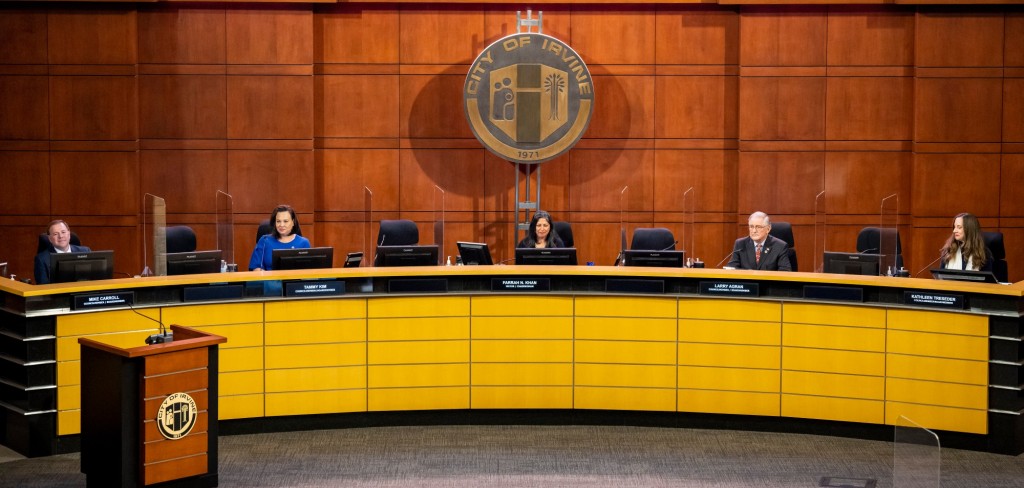Councilmember Tammy Kim has been the sole voice of dissent on the dais as Irvine leaders move toward changing how the council is elected.
She’s been a resident since 2005 and has worked in the city since 2001, and says looking around the neighborhoods, she thinks the proposed switch to hosting by-district contests rather than keeping the citywide balloting where all voters weigh-in on all the councilmembers elected, would make it harder for candidates from minority communities to get elected.
“Anyone who is traditionally protected by the California Voting Rights Act, I think could be impacted by going into district elections,” Kim said. “Because we do not have ethnic enclaves within the city.”
“It would be virtually impossible in a district situation, to galvanize from a representation standpoint,” she said. The Chinese community or the Farsi-speaking community or the Latino community could get left out in district elections, she said, because they might not have the numbers in any one district to coalesce as a whole behind a candidate.
However, longtime Councilmember Larry Agran, among the supporters of changing the city’s election process, says the move would “provide for better representation, not just for minority groups, but for all voting citizens in Irvine.”
After previous Irvine councils resisted pressure – and the threat of a lawsuit – to make the switch to by-district elections, where voters would choose only the one council member who lives within their geographic area, current councilmembers last month decided to look at it further. Several Orange County cities and school and special districts have made the change in years. This week, the council subcommittee put together had its first meeting.
Representation in Irvine
In Irvine, Asians are the most dominant ethnic group. The city ranks fifth among cities with the largest Asian population in the country.
According to the most recent Census data available, more than four in 10…
Read the full article here






